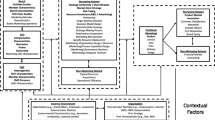Abstract
This article examines the nature and legality of FUD, which—as will be seen—is a timely subject. IBM may have been FUD’s originator but its greatest practitioner is allegedly none other than Microsoft, which (according to the firm’s critics) has repeatedly exercised FUD tactics in order to acquire and maintain its operating system monopoly. In particular, this article compares Amdahl’s experience with IBM to the emerging contours of Microsoft’s battle against a surprisingly able competitor, the open source operating system called Linux. A major contention of this essay is that attorneys, judges, and legal scholars tend to pay insufficient attention to the unique characteristics of technology enterprises, and thus cannot distinguish meaningfully between practices that are plainly legal under U. S. antitrust law, and those which are not. A perspective drawn from the history and sociology of technology (namely, Thomas P. Hughes’ concept of technological systems) is used to elucidate what is predatory, and what is not, in a dominant market player’s use of FUD and associated marketing tactics.
Similar content being viewed by others
References
Arthur, W. Brian. 1989. “Competing Technology, Increasing Returns, and Lock-In by Historical Events.” Economic Journal, 99.
Brandenburger, Adam M. and Barry J. Nalebuff. 1996. Co-Opetition.
Churbeck, David. 1991. “Vapordisk.” Forbes (Oct. 28, 1991).
Daly, James. 1990. “PostScript Challenger Fades: Microssoft’s Page Description Language Not Expected Until 1991.” Computerworld (October 15, 1990), p. 48.
David, Paul A. 1985. “Clio and the Economies of QWERTY.” American Economic Review, 332.
DeLamarta, Richard Thomas. 1986. Big Blue: IBM’s Use and Abuse of Power. New York: Dodd, Mead, and Co.
Dyson, Esther. 1987. “Beware the Hypervapor!” Forbes (July 13, 1987), p. 478.
Elmer-DeWitt, Philip. 1995. “Tripping Up the Titan.” Time (February 27, 1995), pp. 31–33.
Fisher, Franklin. 1983. “Folded, Spindled, and Mutilated: Economic Analysis and U. S. vs. IBM. Cambridge, MA: MIT Press.
Jenkins, Avery. 1988. “Long Overdue: The Reasons Behind Vaporware.” Computerworld Focus (October 5, 1988), p. 10.
Katz, Michael L. and Carl Shapiro. 1985. “Network Externalities, Competition, and Compatibilities.” American Economic Review, 75.
Klein, Joel I. 1998. “The Importance of Antitrust Enforcement in the New Economy.” Presentation given to the New York Bar Association, Antitrust Law Section, January 29, 1998. Available online at http://www.usdoj.gov/atr/public/speeches/1338.html.
Leibowitz, S. J. and Stephen E. Margolis. 1990. “The Fable of the Keys.” Journal of Law and Economics, 33.
Leibowitz, S. J. and Stephen E. Margolis. 1994. “Network Externality, an Uncommon Tragedy.” Journal of Economic Perspectives, 133.
Prentice, Robert. 1996. “Vaporware: Imaginary High-Tech Products and Real Antitrust Liability in a Post-Chicago World.” Ohio State Law Journal, 57.
Rabino, Samuel and Thomas E. Moore. 1989. “Managing New Product Announcements in the Computer Industry.” Industrial Marketing and Management (1989): 35–39.
Taylor, Stuart. 1993. “What to do with the Microsoft Monster.” American Law (November), p. 78.
Author information
Authors and Affiliations
Additional information
where his scholarly and teaching interests include cyberlaw, intellectual property in high-tech industries, and the social issues posed by advanced information technology. He is also the author of several best-selling trade and textbook titles, including Webster’s New World Dictionary of Computer Terms, 9th ed. (Hungry Minds) and Computers in Your Future, 4th ed. (Prentice-Hall). He lives in Charlottesville, Virginia.
Rights and permissions
About this article
Cite this article
Pfaffenberger, B. The rhetoric of dread: Fear, uncertainty, and doubt (FUD) in information technology marketing. Know Techn Pol 13, 78–92 (2000). https://doi.org/10.1007/s12130-000-1022-x
Issue Date:
DOI: https://doi.org/10.1007/s12130-000-1022-x




